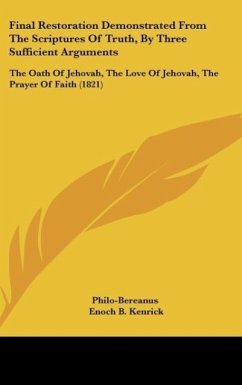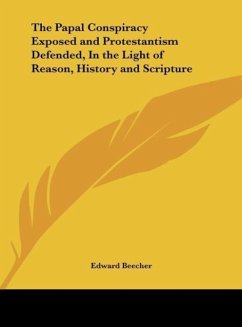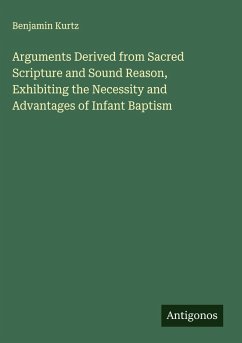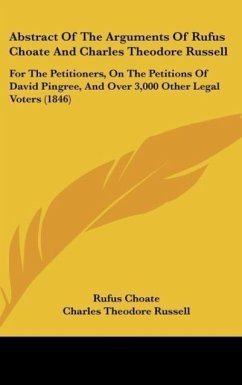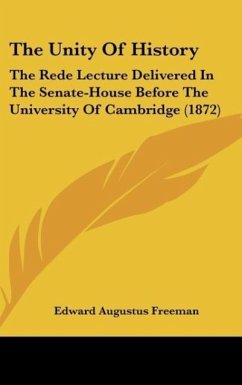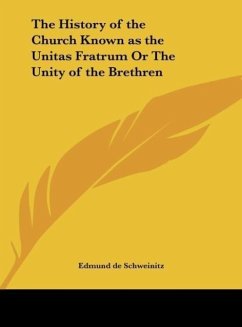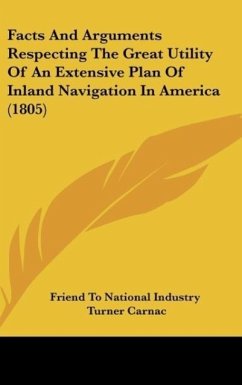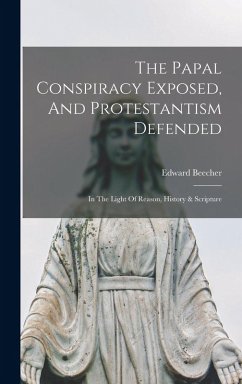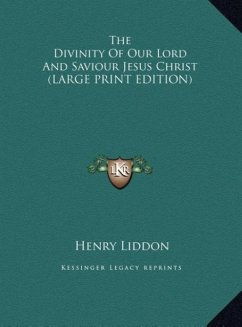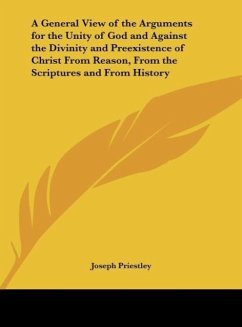
A General View of the Arguments for the Unity of God and Against the Divinity and Preexistence of Christ From Reason, From the Scriptures and From History
Versandkostenfrei!
Versandfertig in 1-2 Wochen
25,99 €
inkl. MwSt.

PAYBACK Punkte
13 °P sammeln!
1785. In writing this small piece, Mr. Priestley had two objects. One is a cheap and extensive circulation; and the other to serve as a guide to those persons who may wish to preserve upon their minds a just idea of the place and value of any particular argument, in a miscellaneous controversy; and to enable them to judge how far any particular advantage in argumentation affects the merits of the question in debate. Due to the age and scarcity of the original we reproduced, some pages may be spotty, faded or difficult to read. Old English text.



